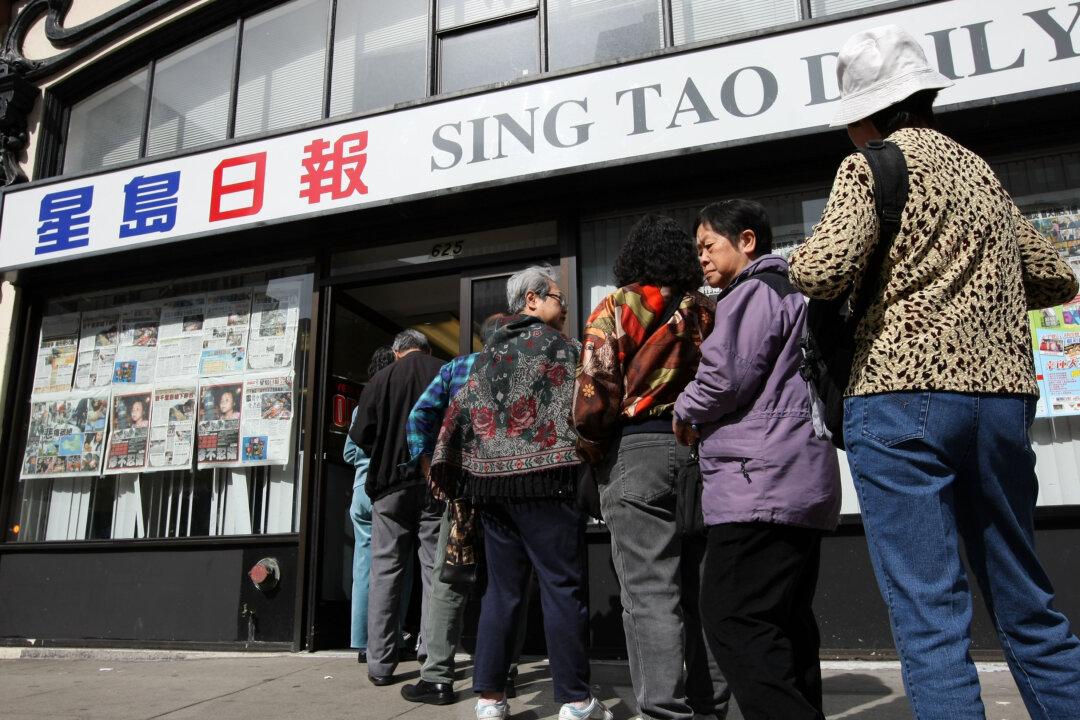A major pro-Beijing newspaper has registered its U.S. subsidiary as a foreign agent after being compelled to do so by the Justice Department, as Washington steps up scrutiny of Chinese influence efforts in the United States.
Sing Tao U.S., whose parent company operates Hong Kong’s oldest newspaper, distributes newspapers in New York, San Francisco, and Los Angeles. It also runs a U.S.-based radio network and the Chinese Times, a daily newspaper that has become dormant.





